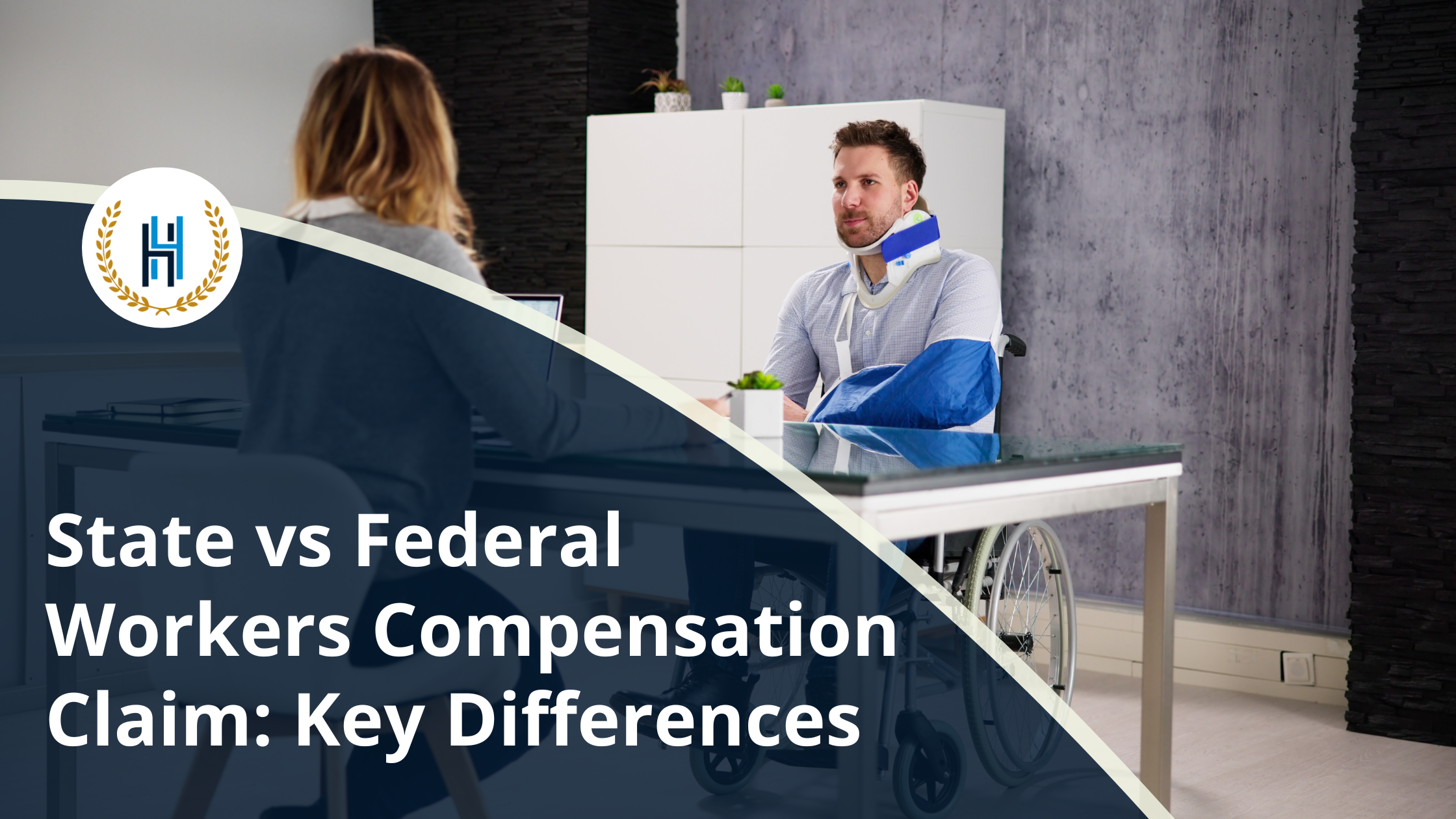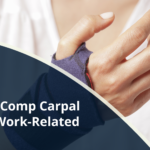Workers’ compensation helps employees hurt at work. Navigating workers’ compensation is complex. Distinguishing between state and federal claims is especially difficult. Workers need to know these differences to get compensation for workplace injuries. This article discusses the main differences between state and federal workers compensation claims. It includes eligibility, benefits, application processes, and more. Workers compensation insurance coverage helps employees who get injured or sick at work. Understand what workers’ compensation is before exploring the differences. Workers’ compensation is an insurance system that provides benefits to employees. It helps employees who are injured or sick from their job. We help injured workers recover without suing their employers.
What is the Difference between State and Federal Workers Compensation Claim?
Let’s delve into the difference between State and Federal Workers Compensation Claim.
- Laws that govern: Workers Compensation Claims differ from state to state. Each state offers different coverage, benefits, and procedures. Most U.S. employers must have state workers’ compensation insurance. Federal Workers Compensation Claim follows federal laws and regulations. The Federal Employees’ Compensation Act (FECA) protects federal employees who get injured at work. Federal workers’ compensation programs cover maritime workers, railroad workers, and longshoremen. State workers compensation claim eligibility depends on the job type and the injury. Many employees, including part-time and seasonal workers, have coverage. Some workers, such as independent contractors and certain agricultural workers, may not qualify. Federal employees get FECA coverage automatically, regardless of their job type. Other federal programs may have different eligibility requirements. Maritime and railroad workers have specific regulations for their programs.
- Benefits: Federal Workers Compensation claim offers benefits to federal employees. These benefits include Medical Care, which includes all needed medical treatment. Employees receive two-thirds of their average weekly wage for lost wages. If they have dependents, they receive three-fourths. FECA provides resources for workers needing retraining, similar to state programs. Federal programs provide extra benefits for certain job categories, such as those covered by the Longshore and Harbor Workers’ Compensation Act.
- Tips to Apply: State workers’ compensation claims require several steps in the application process. Employees must report their injuries to their employer on time. The employee files a claim with the state workers’ compensation board after reporting. The employee needs a medical evaluation to support the claim. The insurance company or state board reviews the claim. They decide on benefits. Each state takes a different amount of time to process claims.
- Resolve Disputes: State workers’ compensation claims can cause disputes. Disputes often involve benefits, eligibility, or claim denials. States allow people to appeal decisions. These processes include hearings or mediation.Workers can resolve disputes through an appeal process with federal claims. Employees can appeal a denied claim to the Office of Workers’ Compensation Programs (OWCP). Federal processes include hearings and reviews to resolve disputes, just like state systems.
- Jurisdiction and Administration: State workers’ compensation programs run at the state level. Regulations and benefits vary greatly. Every state has a workers’ compensation board or commission. The board oversees the program. The U.S. Department of Labor manages federal workers’ compensation. The OWCP manages claims and gives benefits to federal employees and those covered by specific federal acts.
- Third parties may make claims: In State Workers’ Compensation, an employee injured at work due to a third party’s negligence, such as an equipment manufacturer, can file a third-party claim and receive workers’ compensation benefits. This can lead to extra compensation beyond what workers’ compensation provides. Federal employees may file claims with third parties. A third party’s compensation may impact federal workers’ compensation benefits.
Wrapping Up
Employees must know the differences between state and federal workers’ compensation claims. This knowledge helps you seek compensation for workplace injuries. Every system has rules, eligibility criteria, and benefits. Navigate the claims process effectively. As a state or federal employee, know your rights and the processes. This knowledge can help you get the compensation you deserve.
Talk to a qualified workers comp lawyer San Diego if you got injured at work. The best workers compensation attorney California can help you understand your situation. They guide you through the claims process. They ensure you receive all available benefits.
At Hollingsworth & Hollingsworth APC, we have a team of experienced workers comp lawyer San Diego who have handled a wide range of cases. Contact us today and schedule a free consultation with our workers comp lawyer San Diego at (619) 374-9320.









